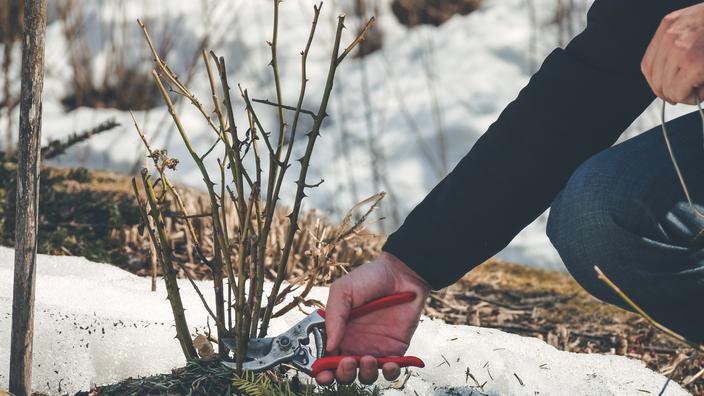Taking care of your
garden in winter
is not easy, and some mistakes can have an impact on your health in the spring.
There are many false good ideas, but these 6 mistakes are the most common and the most easily avoided.
To discover
Garden: what to plant, sow or harvest in November?
November: what are the seasonal vegetables and fruits?
Neglecting your vegetable garden
Even in winter, it is important to regularly check the health of your vegetable garden.
You may have planted vegetables there in early fall and you need to watch your crops so as not to leave them at the mercy of frost and snow.
In winter, it is still possible to harvest:
beets
endives
turnips
carrots
broccoli
leeks
celeriac,
pumpkins
On the orchard side, watch your harvests of apples, pears, kiwis and grapes.
Read alsoNovember: what are the vegetables and fruits in season?
No more crashing
Although nature is at rest during the winter period, it is still possible to enjoy a flower garden and a generous vegetable patch.
In your beds
Hellebores, as well as certain varieties of roses (Lupo and Savoranova), flourish in winter.
Their small red fruits last until Christmas and feed the birds.
In your vegetable garden
It is always possible to plant:
garlic (white or purple)
carrot
cabbage
beans
winter lettuce
chewed up
peas
Depending on the climate where you live, it is also possible to plant some aromatic herbs, such as tarragon chives.
Read alsoWhat to do in winter in your garden?
Forgetting to mulch your garden
Mulching the soil is not the prerogative of very hot periods.
It is a valuable tool to
protect your plants from frost
and snow.
Sufficiently thick (10 cm minimum straw), the mulch will form an insulating mat that will protect your roots from the cold.
While the hardiest perennials like rhubarb, herbaceous peonies, and paniculate phloxes disappear underground while they wait for better days, frost-sensitive plants like dahlias and agapanthus do not.
Mulching these will preserve them and find them in good shape in the summer.
Neglecting the wintering of trees and shrubs
During the
winter period
, it is important to
protect your trees and shrubs
from frost and freezing wind.
For trees and shrubs planted in the ground, you can protect the aerial parts (branches or leaves for the evergreens) by wrapping them in a wintering veil.
For potted plants, it is possible to cover the pots or containers with wintering tarpaulins, bubble wrap or corrugated cardboard.
These three solutions have the advantage of allowing good aeration and protecting the roots from frost.
Read alsoGarden: how to protect your plants from the cold
Forgetting to put the plants in pots
During winter, it is advisable to
bring the plants in pots
to protect them from frost.
Read alsoPrepare your garden for winter
The ideal is to bring in the most fragile potted plants such as geraniums or fuchsias but also citrus fruits and oleanders.
If you cannot fit them in, then it is advisable to place them against the wall of your house or near a window so that they take advantage of heat loss.
However, it is not recommended to bring Mediterranean shrubs (lemon, mandarin, olive, etc.) into an overheated interior.
By wintering them at 20 ° C, these plants will become exhausted.
They need a cool temperature to pause their growth, regain their strength in order to start again in the spring.
Also avoid putting them in a cellar or dark room as they may perish without light.
The best is to let them overwinter in a greenhouse, a veranda or an unheated bright room (garage, shed, etc.), with a temperature ideally between 5 and 10 ° C.
Leave your garden fallow
Winter is the ideal time to
clean and weed your garden.
Besides the aesthetic aspect, cleaning and weeding your garden are two actions that will promote regrowth in spring.
Read also My neighbor no longer maintains his garden: what to do?
If possible, collect dead leaves.
The grass, deprived of light, can wither, just like the perennials of your beds (columbines, primroses ...) which sleep all winter to better bloom again in spring.








